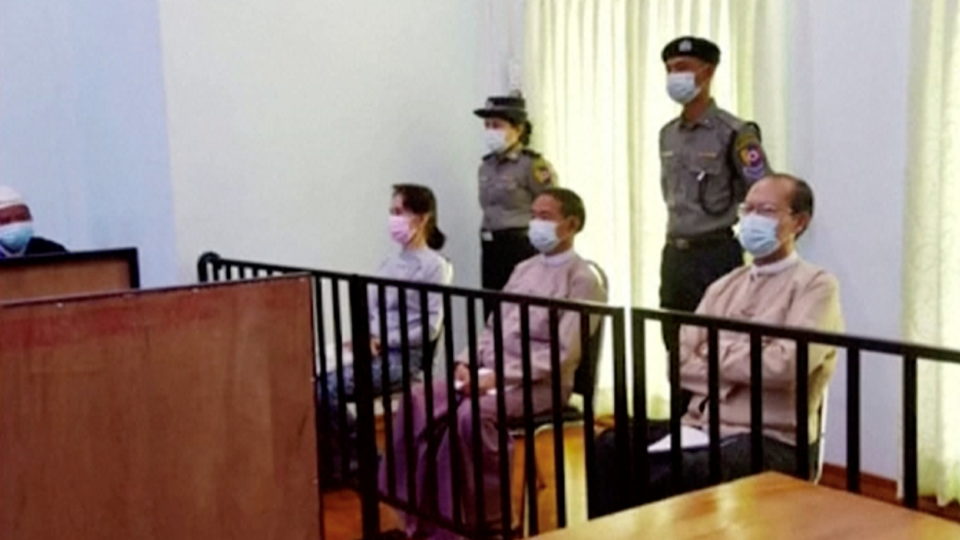Ousted de facto leader Aung San Suu Kyi appeared on Monday in a closed courtroom in Naypyidaw where she faces several politically-motivated charges levied against her by Myanmar’s military junta.
Suu Kyi is facing a flurry of charges, ranging from illegal possession of walkie-talkies, to flouting coronavirus restrictions in the run-up to the 2020 election, to corruption and inciting public unrest. She met with her lawyers only twice since she was arrested on the eve of February 1 coup and placed under house arrest, as Myanmar’s pro-democracy struggle enters its fifth month.
Last week, Suu Kyi was reportedly raising funds for provisions for herself and nine other people under house arrest with her after she refused assistance from the military junta in protest.
Human rights organisations have condemned the trial saying that the junta is attempting to remove her from politics altogether. They also called for her unconditional and immediate release.
“This trial is clearly the opening salvo in an overall strategy to neuter Suu Kyi and the National League for Democracy party as a force that can challenge military rule in the future,” Phil Robertson, deputy Asia director of the Human Rights Watch said in a statement on Monday.
“History is repeating itself, and she is well on her way to once again being a martyr for Burmese democracy, the woman locked away by the military so they can hold the power they illegally seized through brute force and rights abuses against the people.”
Suu Kyi first entered into politics in 1988 when she emerged as a force propelled by her lineage as the daughter of Bogyoke Aung San and her charismatic advocacy for democracy and human rights in Myanmar.
She was first arrested in 1989 and placed under house arrest. She remained under house arrest for 15 of the following 21 years.
When she was finally released in 2010, Myanmar’s military held elections under the military-drafted 2008 constitution that maintained military control over several key ministries. The NLD boycotted these elections but won a historic landslide victory in 2015, signalling a new period in Myanmar history with the return of a nominally civilian government.
Officially barred from serving as Myanmar’s president by the 2008 constitution, Suu Kyi’s legal advisor, U Ko Ni, used a legal loophole to create the position of State Counselor that elevated Suu Kyi as the de facto leader of Myanmar. In 2017, U Ko Ni was assassinated in broad daylight in front of the Yangon International Airport after he returned from a leadership conference in Indonesia.
Suu Kyi, a Nobel Prize laureate and human rights icon, experienced a dramatic fall from grace for her stalwart defense of the Rohingya genocide, perpetrated by the Myanmar military in 2017. Over 700,000 Rohingya Muslims from Rakhine State were forcibly expelled in a brutal campaign of murder, rape, and pillage by Myanmar security forces.
She appeared in front of the International Court of Justice, the UN’s highest court in the Hague, to defend the Tatmadaw’s 2017 military operations in Rakhine State as “counter-terrorism” efforts.
Myanmar’s newly-formed National Unity Government moved beyond Suu Kyi and the NLD’s policy of avoidance on the Rohingya genocide. They released an official policy statement stating that they are committed to the “voluntary, safe and dignified repatriation of Rohingyas” and that they should have “full enjoyment of citizens’ rights.”
The process of repealing & amending laws such as the 1982 Citizenship laws by the new constitution will be beneficial in resolving the conflict in Rakhine State.
This new Citizenship Act must base citizenship on birth in Myanmar or birth anywhere as a child of Myanmar citizens. pic.twitter.com/wIKrxDntnP
— National Unity Government Myanmar (@NUGMyanmar) June 3, 2021




